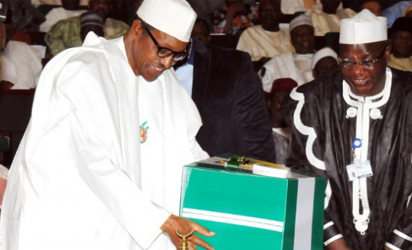There were indications that the Federal Government will be running a more expensive government next year, following the budget breakdown given yesterday by Minister of Budget and National Planning, Udoma Udo Udoma, which indicated a personnel cost budget at seven-year high of N1.86 trillion. This is showing about 8.8 per cent higher than the 2016 figure of N1.71 trillion, despite purported elimination of ghost workers and other leakages since last year, which government said had saved it several billions of Naira in personnel costs.
The Federal Government had consistently dropped its personnel cost for four consecutive years, from N1.85 trillion in 2011 to N1.65 trillion by 2014, but spiked the figure to N1.71 trillion last year and now to N1.86 trillion. Further on the expensive governance in 2017, government also plans to spend N229.8 billion on overheads, up massively by 40.7 per cent from N163.39 billion budgeted last year.
The government had dropped its overhead budget last year to N163.39 billion, down by 8.0 per cent from N177.6 billion previous year. Giving the breakdown of the recurrent (non-debt) expenditure, Udoma included in the recurrent non-debt expenditure of N2.98 trillion a total N89.98 billion expenditure on Service-Wide Vote pensions, N116.5 billion for expenditure heading categorized as ‘’Other Service-Wide Votes’’, and N191.6 billion for Consolidated Revenue Fund Pension.
Other major allocations include the Presidential Amnesty Programme which is taking N65 billion, Refund to Special Accounts taking N50 billion, and a Special Intervention Programme (recurrent) taking N350 billion. In the ministerial grouping the largest recurrent allocations went to the Interior Ministry with N482.37 billion; Ministry of Education with N398.01 billion; Ministry of Defence with N325.87 billion; and Ministry of Health, N252.86 billion.
Analysing the expenditure components, aggregate recurrent spending accounts for 35.3 per cent of aggregate expenditure, which went up 8.7 per cent from N2.3 trillion in 2016, while capital expenditure is budgeted to rise by 41.1 per cent to N2.2 trillion representing 31 per cent of the total expenditure. Debt service is projected to be the third largest component of total expenditure, proposed to grow 8.7 per cent year-on-year to N1.7 trillion as a consequence of increasing debt obligations while taking up 23 per cent and 33.6 per cent of gross expenditure and revenue respectively. Commenting on the huge figures, analysts at Afrinvest West Africa, a Lagos-based investment house, stated: ‘’Clearly, underpinning the ambitious 2017 spending plan are overly optimistic assumptions which belie fundamental economic realities and policy environment.
‘’Thus, despite the optimistic projected revenue, we are cautioned by the fact that actual government revenues have remained pressured and performance rate would be less than desired. ‘’We expect either of the following two scenarios to play out in 2017: Fiscal deficit expands above 2.2% of GDP in the proposed budget to be financed exclusively with domestic borrowing at the expense of tighter monetary policy and crowding-out of the private sector; or Government eventually forced to make concessions on tax rate and foreign exchange market structure to boost Naira revenue and access long term concessionary external financing. ‘’We think a mixture of both scenarios will play out with the government likely opting for the former in first half of 2017 before embracing the latter on account of fiscal pressures.’’
.Vanguard















